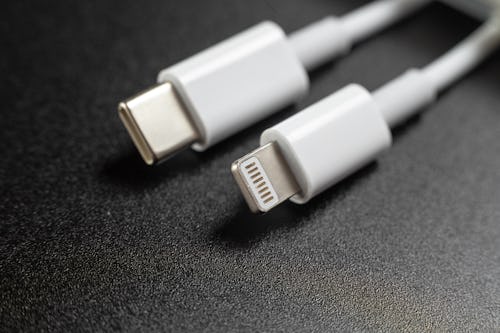
It’s better late than never, but wow, it is still really late. U.S. lawmakers are putting pressure on tech companies (read: Apple) to have USB-C charging standardized for its products. Three Democratic senators wrote a letter recommending that the U.S. Department of Commerce develop a plan for a common charging standard in the U.S. just a few weeks after the European Union adopted a similar measure.
The letter, signed by Senators Edward Markey, Elizabeth Warren, and Bernie Sanders, directly references the recent legislation passed by the E.U. that will force tech companies to have their products be compatible with USB-C by 2024. The E.U. had been working on this USB-C legislation for years, and it seems the U.S. is only getting started on this process.
“The EU has wisely acted in the public interest by taking on powerful technology companies over this consumer and environmental issue,” the senators wrote. “The United States should do the same.”
Long overdue —
The three senators talked about the financial impact of not having USB-C standardized since consumers have to buy charging cables for all of their different devices. The senators also pointed out the environmental harm that comes from having myriad charging cables due to the waste generated from obsolete chargers.
Of course, consumers know all too well the struggle of needing a separate charger just for their iPhone, while practically every other device can charge through USB-C. The good news is that there are already some recent rumors that Apple is planning to switch over its remaining devices that use Lightning charging over to USB-C. Most recently, a report from 9to5Mac said that Apple would build its next entry-level iPad with USB-C. A month prior, a reliable Apple leaker said that we’ll finally see USB-C with the iPhone 15.
Too little, too late? —
Before we get ahead of ourselves, we have to remember that this is just a letter to the Commerce Department from three Democratic senators. There’s no indication that this has any support from lawmakers broadly, or if this will be the catalyst for actual legislation. There’s also the fact that tech companies have spent heavily on lobbying efforts against any potential laws that hurts their bottom lines.
Still, it’s nice knowing that there’s some hope for actual legislation, even if the U.S. is characteristically behind the curve.







